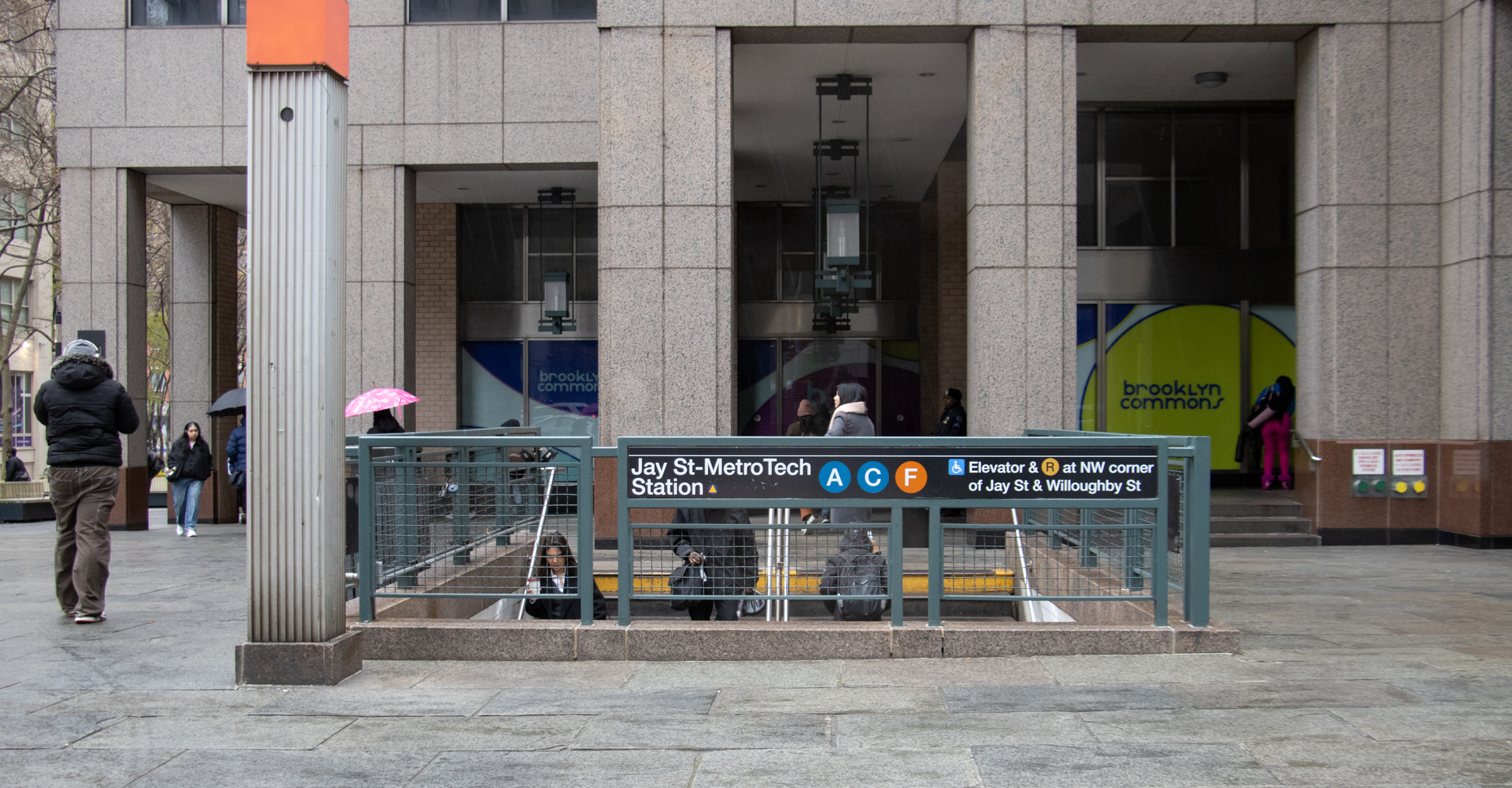Gotham's Supermarket Shortage: A Public Health Crisis?
The city’s recent building boom has had at least one noticeable deleterious effect on a cross-section of New Yorkers, but especially poorer ones: It’s played a large role in supermarkets closing as owners sell out developers, according to an article published a few weeks ago in the Washington Post. (The story zooms in on a…


The city’s recent building boom has had at least one noticeable deleterious effect on a cross-section of New Yorkers, but especially poorer ones: It’s played a large role in supermarkets closing as owners sell out developers, according to an article published a few weeks ago in the Washington Post. (The story zooms in on a Fort Greene woman who now has to drive in order to get to a supermarket after her local mart was sold off to a developer.) There are now one-third fewer supermarkets in the five boroughs than there were six years ago, says retail consulting company F&D Reports. The Bloomberg administration thinks fewer people having access to fresh produce is a public health crisis, and it’s pushing legislation like the Green Cart law to get more fruit-and-vegetable stands into low-income neighborhoods. There’s also a statewide supermarket commission in the works that will try to come up with new ways to lure groceries to underserved communities. A similar strategy has apparently already been tried in Philadelphia, where a nonprofit organization called Food Trust helped attract 32 new supermarkets. The supermarket shortage, of course, also affects residents of new luxury condos. “How are you going to have million-dollar condos if there’s no place to buy bok choy?” Alicia Glen, the managing director of the Goldman Sachs Urban Investment Group.
Groceries Grow Elusive For Many in New York City [Washington Post]
Yes, We Have No Bananas: More Fruit Stands for Brooklyn [Brownstoner]
Photo by janelbot.





I work on Wall Street and every week it seems a bill board goes up for conversion of office space to rental or condos. But not a single grocery store seems to be going up in the area. So guess that means everyone will be shopping at the Duane Reade, the couple of convince store/salad bar places or using Fresh Direct and have one of those noisy refrigerated trucks idling outside their luxury digs bring them over packaged food.
It is not just the poorer nabs that have this problem. The whole city needs better access to grocery stores with in easy walking distance, so that people are not dependant on polluting cars or delivery trucks to obtain their food.
1PM here. I worked very long hours just like you when I was working in Manhattan, 5:50. In fact, in semi-retirement now, I still do, in a home office. But for me, walking is not a “luxury.” It’s a conscious decision -and one I made many years ago, and absorbed into my way of life. New York City is one of the most walkable in the world. Walking to get your groceries is a choice, for both your health and the environment.
You say you “don’t want to own a car but feel like we have to” and you “don’t necessarily want to give up an afternoon every weekend.” Fine. But you have to realize that in acting on that desire, you’re making a choice to own a car and add to the general pollution in order to save time to do what you’d rather be doing. Therefore, your decision is that your time is worth more to you than the environment. No offense, but you could easily “reduce greenhouse gases and waste of oil,” by simply making a different decision, but you’ve decided not to. And if that’s the value system you teach your children, they will do the same. So don’t say “it sucks,” as though you’re helpless to do otherwise.
It’s nice you’ve always had the time to set aside for a nice long walk to get groceries, 1pm. Not everyone has that luxury. Most families have both parents working full time long hours. Those people and others who work don’t necessarily want to give up an afternoon every weekend just to get their groceries. Buying groceries should be a one-hour activity total including travel time to get there and get home.
The fewer the markets and amenities the more cars on the road in Brooklyn. Aren’t we supposed to be trying to reduce greenhouse gases and waste of oil, not increase it? We don’t want to own a car but we feel like we have to. It sucks.
What astonishes me every time I see protesters marching about the closing of that supermarket across from the projects is that about 80% of them could clearly use the exercise of walking a few blocks to get groceries. Which is what I have done since I moved to Clinton Hill 20 years ago. Buy a rolling granny-cart, folks, watch a little less TV so you have time for the trip, load up, and stretch your legs. Before CH, I lived in an area of the E Village long before it was fashionable or had supermarkets. No problem; I found out what stuff I wanted was available in reasonable walking distance (say about 12 blocks)and occasionally took the train to find the rest. The money I saved with my stabilized rent made it possible to buy in CH. I’ve lived at Classon and Greene for 20 years, and used to get off the train after work at BHts, buy my produce, and walk home. Now I’m a senior citizen, and these days I walk daily to and from Fresh Market (at Fulton and S. Oxford) or Perelandra (in Bklyn Hts) to get fresh fruit and veggies. My granny cart gets enough of a workout that I have to get a new one every couple of years. But maybe it’s all the walking (and fresh produce) that’s kept me in better health than a lot of my contemporaries.
Fort Greene is sad, especially the southern side near Fulton. Bad shops, bad. bad. bad.
The Yemeni bodega on Fulton and Clinton is OK for milk, bread, an occasional can of tuna fish- that sort of thing. There is a foul supermarket on Fulton and Washington. Associated? I forgot. The last time I went there was about a year and a half ago when I picked up some moldy strawberries, sour milk and expired yogurt. I take one trip a week to Fairway. People who don’t have a car are screwed.
10:58, you’re the one who doesn’t know what you’re talking about. In the 1st place, 9:57 is talking about people moving out, not people moving in. So I don’t quite understand what the point is in giddily bringing up the fact that so many of your classmates have moved here. That’s like someone disputing my claim that car accidents can be fatal, by bringing up the fact that so many people have survived them.
In the second place, if you’d bother keeping up with the news, you’d know that people ARE getting out of dodge:
http://www.nytimes.com/2006/04/03/nyregion/03blacks.html?_r=1&pagewanted=1&oref=slogin
If you want to know where they’re moving to, read the article to get your answer.
9:51, thank you for your compassion and rightous indignation. It amazes me how some can always find it in themselves to easily tell others what to do, especially when they have no clue as to someone’s life or situations.
I used to think that as we progressed through time and history, we would become more enlightened and generous people. After all, anyone born after 1955 or so, has grown up with civil rights advances, women’s rights, gay rights, a more advanced world view and appreciation of other cultures and people. Yet, we have gotten more intolerant, greedy, and selfish. A city that could easily feed and house the entire population has become a feeding frenzy shark pool dedicated to taking everything away from those with little, and selling it to those who already have too much.
The city’s compassion of just post 9/11 has been replaced by an attitude and mindset by many, that would assert that those lost in the Towers are at fault, because they should have known better than to work there, or in the case of first responders, should have worked harder to get better jobs that were less dangerous.
Every celebrity on the planet wants an apartment in New York.
The rest of the US is a shitshow. Seattle is ok, San Fran is ok. A couple others are ok, but 10:58 is right.
New York is still the driving force for anyone in the performing and visual arts, advertising, law, fashion, finance and some sectors of entertainment.